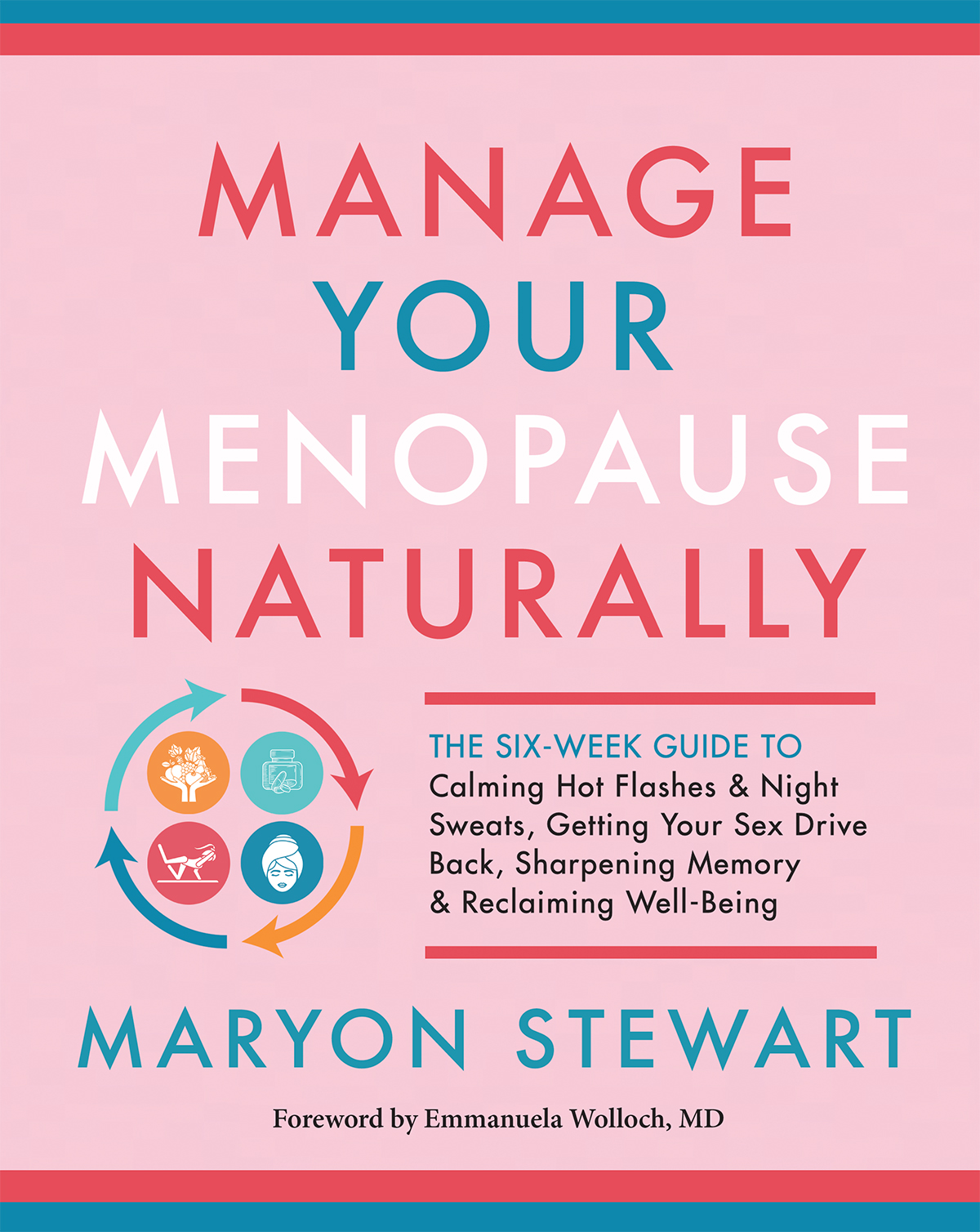*Elephant is not your doctor or hospital. Our lawyers would say “this website is not designed to, and should not be construed to provide medical advice, professional diagnosis, opinion or treatment to you or any other individual, and is not intended as a substitute for medical or professional care and treatment. Always consult a health professional before trying out new home therapies or changing your diet.” But we can’t afford lawyers, and you knew all that. ~ Ed.
An Excerpt from Manage Your Menopause Naturally by Maryon Stewart
~
Feeling like you are losing your memory at midlife can be frightening, especially if you think it’s permanent.
Many women secretly wonder if these “senior moments” are the beginning of early-onset Alzheimer’s disease or dementia and are truly freaked out.
If you forget what you are saying in midsentence, what you went into a room for, or where you put your car keys, you are not alone. It’s one of the commonest symptoms of menopause. You are not losing your marbles. We all start to forget things as we age, say the experts. Among a group of people asked to memorize a list of 75 words read out five times, the average 18-year-old scored 54, a 45-year-old scored 47, and a 65-year-old scored just 37.
No one knows the reason for sure, but it’s thought most memory problems at this time of life are due to a combination of poor concentration, lack of motivation, tiredness, anxiety, and stress, rather than loss of brain cells. Feeling fuzzy-headed is also thought to be related to the hormonal ups and downs associated with menopause. Nutrition plays a role too: the brain goes into economy mode when it has a low level of nutrients, which makes thinking less clear. And as we grow older, our circulation slows down, and less oxygen reaches our brain cells.
Some parts of the brain particularly involved with verbal memory are rich in estrogen receptors, so there could be a physiological link between hormonal status and brain function, as suggested by research undertaken by Sandra File at Guy’s Hospital in London.
Like our muscles, our brain needs exercise in order to function optimally. Many of us don’t stretch our brains as much as we could. Following a nutrient-dense and phytoestrogen-rich diet, leading an active lifestyle, not smoking, limiting alcohol intake, and keeping your brain well exercised can all help to keep you sharp.
Food for Thought
The brain is dependent on glucose, essential fats, and phospholipids. Several B vitamins are also essential for memory and mental performance. Zinc and magnesium are necessary for neurotransmitter function. It follows that including certain nutrients in your diet can help boost your concentration, attention span, and both short and long-term memory. Research also suggests that brain-boosting supplements can help improve your memory. Indeed more than 300 medical studies have been published on memory, most indicating the benefits of taking daily supplements.
An extract made from the leaves of Gingko Biloba, commonly known as ginkgo or the Chinese maidenhair tree, has gained recognition over the past 30 years for helping restore vascular function and memory. Ginkgo improves circulation, which in turn increases blood flow, carrying more nutrients and oxygen to the brain. This helps restore short-term and long-term memory, helping you to think more clearly and concentrate better.
Foods rich in the antioxidant vitamins A, C, and E help mop up free radicals, the rogue molecules that can cause cell damage in the body, including the brain. Good sources include richly colored fruits and vegetables, such as bananas, red peppers, spinach, and oranges.
Oily fish is rich in omega-3 essential fatty acids and folate, which are vital for the functioning of the brain and nervous system. Good sources include sardines, salmon, herring, anchovies, and mackerel.
Eating soy has been shown to improve memory in menopausal women. These research findings have led to speculation that soy may also help maintain cognitive function in older women and reduce the risk of Alzheimer’s disease.
Quiz: How Sharp is Your Brain?
>> Do you ever forget what you went upstairs for?
>> Do you have trouble remembering telephone numbers?
>> Do you find it hard to concentrate?
>> Do you forget a person’s name the moment after you’ve been introduced?
>> Are you prone to absentminded acts, such as putting milk in the cupboard instead of the refrigerator?
>> Have you ever missed an appointment because you forgot it?
>> Do you have to write arrangements down the minute you make them for fear of forgetting them?
>> Have you ever forgotten the name of someone you know well?
>> Do you frequently lose your car keys?
>> Have you ever forgotten what you were saying midsentence?
>> Have you ever gone to mention something important to someone, but gone completely blank?
>> Have you ever put something in the oven and forgotten to take it out?
>> Have you ever said you would do something for someone, but completely forgotten to do it?
If you answered yes to more than three questions, it’s time to try some memory-boosting foods and supplements, as well as doing some mental exercises.
Staying Sharp
Many studies show that stimulation is the key to good memory and that people who take part in lots of different types of mental activity have better powers of recall. The more active your brain is, the better your memory is likely to be, and the more different ways you use your mind, the easier you’ll find it to remember things. It’s all to do with being active, rather than passive: whether you actively concentrate and focus on things or whether you just let them wash over you.
Try the following exercises to sharpen your mental faculties:
>> Do a mental exercise every day—a crossword, sudoku, word search, or quiz. If you don’t know the solution, look it up, then try to remember it the next day.
>> When doing your finances, ditch the calculator and use your brain instead.
>> Take up new activities—gardening, knitting, or anything involving physical coordination.
>> Memorize your shopping list before going to the store.
>> Engage in games that stretch your brain, such as chess or bridge.
Our memory allows us to learn new things and store millions of facts and figures in words, sound, and picture form. Even if we fed information into our brain every second of our lives, it would find room to store all we needed to recall. We rely on the information retained in our memory to respond to environmental and social stimulation every day of our lives.
~
Excerpted from the book Manage Your Menopause Naturally. Copyright ©2020 by Maryon Stewart. Printed with permission from New World Library.

~









Read 0 comments and reply